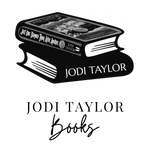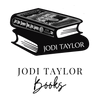History, True or False?
OK everyone – hope you’re all well and hanging in there.
Something quite serious today.
History and how important is it in our lives?
When I first started writing, back in 2011/2012 there was no such thing as Fake History. Yes, there was ‘spin’ of course, as politicians attempted to persuade us to regard their most recent disasters in a more favourable light, but most of us just laughed and went on our way.
It seemed to me while writing Just One Damned Thing After Another that I had to give historians a good reason for doing what they do – other than because they have a happy mix of every personality disorder known to man and a near terminal death wish, of course – so I simply had Dr Bairstow vaguely say that it was always important to know the truth. The often-inconvenient truth – not the religious, politically correct, politically expedient, written by the victors truth, but the real truth. Everyone at St Mary’s solemnly nodded their heads and cantered off to wreak more havoc on the already battered timeline.
It never occurred to me – not in a million years – that in such a short time we would move into the realms of real Fake History. Where sometimes the events of only last week could be denied/altered/ignored/misrepresented and so on. Right in front of our eyes, sometimes.
I was scribbling away the other day – a scribble a day keeps the electrodes away – and thinking about this because it’s a small part of the plot in Another Time – Another Place (the next St Mary's book). It seemed to me that because we can’t always trust our leaders – bless them – it is essential to know the truth.
And then – because I was born to argue – I thought, actually, is it? How important is it to know the truth?
Consider – Country A and Country B. They’re nice little countries, quite well off as countries go and the people are pleasant and friendly and you’d really like them if you ever met.
Except – they’ve been at war since the year dot. The history of all the military engagements is taught at school. Each side instructs their people not to trust the other. That they’re a bunch of treacherous fanatics who would sell their own grandmother if it suited them. Each side is brought up hating the other. They don’t fight all the time, of course, but every now and then it flares up – it’s the anniversary of the famous Massacre of Town C – conveniently ignoring the fact they lose more citizens in a week to road traffic accidents than to the supposed massacre which might never actually have occurred – and off they go again on the Treadmill of War.
Could it be argued that without a knowledge of previous history the inhabitants of each country would encounter each other with open minds and possibly quite like each other? The events of the past would literally be lost in the mists of time and without the Millstone of Memory around their necks, would they stop blowing each other to pieces and build trading and cultural relationships instead?
Or should we always remember our past? And if we do, are we intelligent and tolerant enough to rise above it?
Or should we actively change our past? Should the films and books of Countries A and B show them as equal and honourable partners, not only treating each other with respect now, but in the past as well. Wishful thinking, I know, and dangerous, too but does this give them something to aspire to?
Or would that be dishonouring all those who died in the conflict? Is this sweeping war and death under the carpet? As Max says, ‘Looking away when bad things happen does not mean that bad things cease to happen?’
Should their cultures reflect the way they wish things were – or the way they actually are? And if the latter – how do they move on?
If everyone from A and B woke up one morning with their memories erased – would this be such a bad thing? Is it ever acceptable to change history? I don’t just mean politicians spinning events to make things seem if not better, then at least less bad, but actually erase or rewrite history? Given that we seem doomed to repeat the same mistakes over and over again, what would happen if we were able to sever our link with the past and look only forwards? Or will we always find something to fight about?
On the other hand – did I mention I was born to argue? – if real history is to be swept aside who is to say what should replace it? A carefully edited version that everyone would be comfortable with? And if so, how long until someone dreamed up a better version and it’s replaced again. At least the old ‘warts and all’ history had one virtue – that of truth.
So – does history serve a useful purpose? Does it enable us to learn from our mistakes? Or is it actually a major factor in the never-ending wars of our species? Would we be better off without it?









Oh dear, what a conundrum! I can see both sides of the argument (ever the peace maker) but if I had to choose, it would have to be to know the truth, the whole truth and nothing but the whole dirty truth. If you’re going to hide the truth about conflict, then what about the truth behind the slave trade? Or the emancipation of women? Or whether they really did walk on the moon? And now my brain hurts. Is it too early for a glass of wine?
Hi Jodi, I think we do learn from some truly awful things that have been done in the past, BUT there are always some who want to rewrite history to suit themselves, to change what has always been done, not always with good motives. This is why Historians can view as many of the facts available and decide whether what was done was correct or not as we know it.
Waiting patiently for pre order to come out for the next book. Stay safe and stay well.
Hi Jodi,
I’m going to have to agree with Dr. Bairstow. We should know the truth, and every ugly inch of it. I think making good decisions, for an individual or a country, is really hard and without all the information about what happened previously it is even harder. I’m a firm believer in learn from your mistakes. I’m also a firm believer in critical thinking and that can’t be done without the facts, but as history is usually written by the winners, facts are often hard to come by. The truth can be painful, but it also has no agenda.
Hi Jodi,
I’m going to have to agree with Dr. Bairstow. We should know the truth, and every ugly inch of it. I think making good decisions, for an individual or a country, is really hard and without all the information about what happened previously it is even harder. I’m a firm believer in learn from your mistakes. I’m also a firm believer in critical thinking and that can’t be done without the facts, but as history is usually written by the winners, facts are often hard to come by. The truth can be painful, but it also has no agenda.
I have often pondered just this. Are we perpetuating problems by teaching one sided political history and bringing up age-old slights? But Jodi, I would argue, history is necessary (the past informs the present for people other than morons). Perhaps it is the way it’s presented? Looking forward to the next book! X
Leave a comment